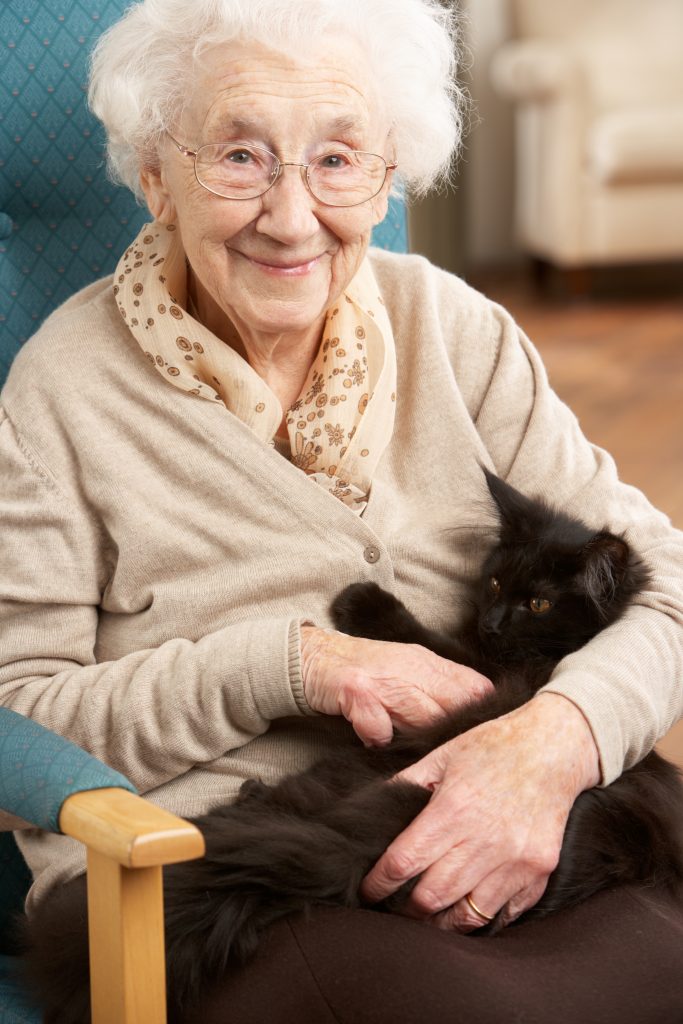What is Sundowning? Dementia Care

Sundowning is a term that you will often hear used in relation to individuals who are living with dementia. It is a set of symptoms and behaviours which typically begin each day, as the light begins to fade (hence the name “sundowning”). These symptoms may only be present at dusk and in the early evening, but for some, they will also continue into the night. Sundowning in dementia is most often observed in the mid-late stages, but not everyone with a dementia diagnosis will experience the phenomena.
What does sundowning look like?
There are a number of symptoms that are associated with sundowning. These include:
- Agitation
- Aggression
- Being more demanding
- Increased confusion
- Increased difficulty in communicating verbally, or understanding what is being said
- Hallucinations and delusions
There may also be physical behaviours such as:
- Pacing
- Wandering
- Doing impulsive things
What causes sundowning in dementia?
Experts aren’t completely sure what causes sundowning, or why some people experience it when others don’t. It is believed that it may in part, be related to changes in the brain which affect the circadian rhythm (our internal body clock).
There are also other stresses and triggers which can lead to sundowning:
- Too little sleep, or too much sleep during the day
- Being tired at the end of the day (from the mental energy used)
- Caregivers being tired and rundown
- Changes in light levels
- Lack of routine at what may previously have been a busy time of day
- Medication wearing off
- Lots of noise

It takes a lot of mental energy for our brains to understand the world around us, particularly in people who have a dementia diagnosis. Think about how irritable or tearful you can feel when you are really tired, or you’ve had a stressful day. It’s no wonder that our loved ones with dementia feel more agitated as the day goes on.
In a similar way, it is easy to see why confusion becomes worse in the evening. If you’ve ever been jetlagged or struggled to get by on only a few hours sleep you will remember how difficult it can be. What someone is saying to you takes longer to understand and register. Tasks that you would normally be able to do easily, become more challenging, and this can be seen in sundowning. As the brain (which is already working so hard) gets tired, things become more confusing, frustrating and scary for the person.
Sundowning – tips for carers
Be patient
Try to understand what is causing the behaviour. Is there something that your loved one is trying to communicate? Are they hungry, do they need the toilet, are they scared? Ask them if they need something.
Think about the day. Did anything happen before the behaviour began, such as a loud noise or the flashing lights of a police car going past?
If you get frustrated or angry with the person, it can lead to the behaviour becoming worse or escalating. By trying to understand where the behaviour is coming from, it can help you to remain calm and empathetic.
Keep a routine
Changes to place and/or routine, can be disorientating and confusing to someone who has a dementia diagnosis. By keeping daily activities to a regular schedule, it can promote not only a sense of reassurance but may help to orientate them to the right time of day.
Wherever possible, try to keep more stressful scenarios (showering, doctors appointments etc.) to earlier in the day. This is when your loved one is most likely to be able to cope with these, as they won’t be too tired. The same goes for meals. Having a larger lunch and a smaller snack at dinner may be better.
Avoid daytime naps if possible. If your loved one needs to nap during the day, try to make these earlier so that they will still be able to sleep at bedtime.

Fresh air and exercise
Get your loved one outside for some light exercise in the morning, or early afternoon. It doesn’t have to be for long; a slow walk to the park would be enough. The important thing is to ensure they are getting daylight and fresh air, which should help with sleep and feeling tired at night. If they are not very mobile, sitting on a bench or in the garden would still help. Even if they can’t leave the house, sitting by the window getting daylight that way, may be useful. It helps to reset the circadian rhythm (internal body clock) which should help with feeling sleepy later on.
Keep the lights on
Shadows can be confusing and scary for someone who has dementia. The brain isn’t able to understand and process what is being seen, and can, therefore, be interpreted as a threat. To avoid this, you should close the curtains when it starts to get dark and keep the lights on.
For some people, bright lights may make them more agitated, so it is best to see what works for your loved one and adjust things accordingly.
Distract
Distraction is a useful technique but will not work for everyone. You may find that you are able to distract your loved one by offering a hot drink, or giving them a simple task to do such as folding tissues. If they are saying that they want to go home, or asking about someone who has died, don’t argue with them. Instead, try a change of direction in the conversation, or distract them with something they enjoy and you know they are likely to engage with.
Keep things calm and comforting
Having a calm and comforting pre-bedtime routine can help with sundowning, as well as sleep. Keeping a quiet environment with little noise and distraction may help. Some individuals will find music from their younger years, or quiet classical music to be relaxing.
Think of the last time you were unwell. You probably wanted things you find comforting such as a fluffy blanket, a hot drink, or a cuddle with a pet. These are also things that someone with dementia may find helpful. Pets can be very calming, so if they have a pet (or a cuddly toy substitute), see if they will sit and stroke the pet.

If you know your loved one likes having their hair brushed or enjoys another self-care activity, do this in the evening. Build it in as part of their routine. Wearing pyjamas or dressing gowns whilst doing this can help to orientate them to the fact that it is night time. Sometimes your loved one may just need some reassurance. Sitting and holding their hand may be enough, to allow them to relax and wind down in the evening.
Keep them safe
Wandering and pacing can be difficult to witness as a carer, and you may worry that your loved one will hurt themselves.
Try to ensure that doors and windows are securely locked and that any potentially dangerous items have been removed. Following your loved one everywhere they go may agitate them further, so let them pace or wander safely, whilst keeping them in eyesight.
It is important to try and understand that although it can be distressing to watch, pacing and/or wandering is serving a purpose for your loved one. This could be a release of agitated energy, or perhaps they are walking somewhere in their memory. As long as they are safe, it is ok to let them do this.
If you are concerned about them wandering in the night, there are a number of sensors, and pressure devices that can alert you to when your loved one is on the move.
Look after yourself
If you are currently caring for a loved one with dementia, it is vital that you access further help, support and advice. Being the primary carer for someone with any illness or disorder can take a lot out of you, but due to the mood and behavioural changes that occur in a person with dementia, it can become exhausting over time. Having a support network can really help you to to feel less alone and help to provide somewhere to turn, when things feel particularly tough.
Try to take regular breaks by having a family member or friend take over for a while, or by using respite care services. Your loved one will be able to sense if you are frustrated, tired or stressed and it may lead to their behaviour becoming more difficult to manage.
Don’t forget that you matter too, and your health is equally as important as that of your loved one. You can’t pour from an empty cup.
We hope that you have found our article on sundowning in dementia useful. If these ideas do not seem to be helping with the person that you care for, it is important to speak to their doctor. They may be able to make further suggestions, or put you in touch with more specialised services.
Remember that many of the symptoms and behaviours of sundowning serve a purpose for your loved one. Once you are able to understand this and look at it from their perspective, it will be easier to find out how to help them to manage these.
If you enjoyed this post, please help us by sharing it with your friends on social media!
